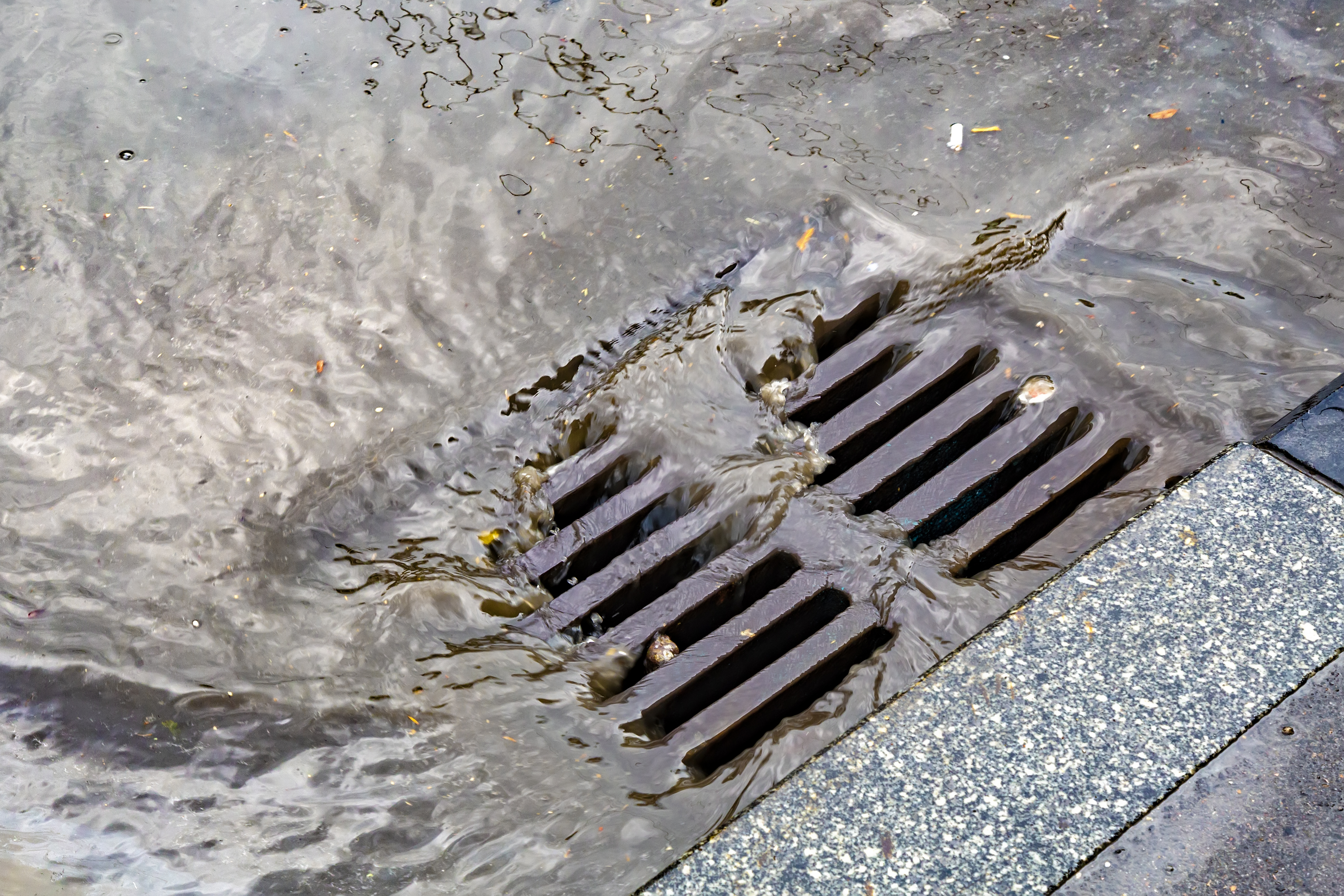Municipal Separate Storm Sewer Stormwater (MS4)

Stormwaters, such as rain and snow melt, which run over impervious surfaces in urbanized areas – roadways, sidewalks, parking lots, roof tops, etc. – are often unintentionally, or unknowingly, mixed with potential sources of pollutants. Waters travel quickly over these impervious areas and can carry large quantities of materials. Such pollutants can include, but are not limited to, fertilizers, pesticides, oils, metals, salts, loose sediments, soaps from car washes, etc. When these pollutants mix with stormwater, they eventually enter storm drains located throughout the urban areas and ultimately enter our waters and wetlands.
Our lives are heavily dependent on our water systems, and therefore dependent on the health and functionality of these ecosystems. Pollutants in our surface waters have a wide array of damaging effects. Fertilizers often lead to eutrophication, or the excessive nutrient loading in water which leads to algae blooms. These algae blooms can be toxic or deprive the water of oxygen leading to fish kill events. Pesticides can similarly throw ecosystems out of balance by being directly toxic to aquatic plants, fish, and insects. Heavy metals can make the consumption of fish in the affected area dangerous. Over time, heavy metals can accumulate in an ecosystem and create many physiological and reproductive issues in the species that inhabit the area. Loose sediments from construction sites can reduce water clarity, smother aquatic plants, alter the physical structure of a stream, and potentially lead to increased algae growth. Protections and practices must be in place to prevent the effects of these pollutants as much as possible.
What is a MS4?

A Municipal separate storm sewer system (MS4) is a system of conveyances that include, but are not limited to, catch basins, curbs, gutters, ditches, man-made channels, pipes, tunnels, and/or storm drains that discharge into Waters of the State. For these conveyances or system of conveyances to be recognized as an MS4, a state, city, town, village, or other public entity must own them. These conveyances must also not be part of a Publicly Owned Treatment Works and may not operate as a combined sewer.
Operators of large, medium and regulated small Municipal Separate Storm Sewer Systems are required to obtain NPDES permit coverage to discharge pollutants into Waters of the State. These designations (large, medium, and small) are based on urbanized areas as determined by the latest census. The MS4 permits are designed to reduce the amount of sediment and other pollutants entering state waters from stormwater systems. Entities regulated by MS4 permits must develop a stormwater pollution prevention program and adopt best practices.
South Carolina has one (1) large MS4 - the South Carolina Department of Transportation and three (3) medium MS4s - City of Columbia, Greenville County, and Richland County. These MS4s receive individual NPDES permits for their discharges.
There are also many more small MS4s (sMS4) within the state of South Carolina. The operators of these may choose to receive coverage under a general permit or obtain individual permit coverage.
Discover if you are within a regulated MS4
MS4 and sMS4 Expectations
Large and Medium MS4s must prepare and submit a permit application to address each of the following elements:
- Structural control maintenance
- Areas of significant development or redevelopment
- Roadway runoff management
- Flood control related to water quality issues
- Municipal owned operations such as landfills, wastewater treatment plants, etc.
- Hazardous waste treatment, storage or disposal sites, etc.
- Application of pesticides, herbicides, and fertilizers
- Illicit discharge detection and elimination
- Regulation of sites as classified as associated with industrial activity
- Construction and post-construction site runoff control
- Public education and outreach.
Regulated Small MS4s must develop a program to cover each of the following minimum control measures:
- Public education and outreach
- Public participation/ involvement
- Illicit discharge detection and elimination
- Construction site runoff control
- Post-construction site runoff control
- Pollution prevention/ good housekeeping

